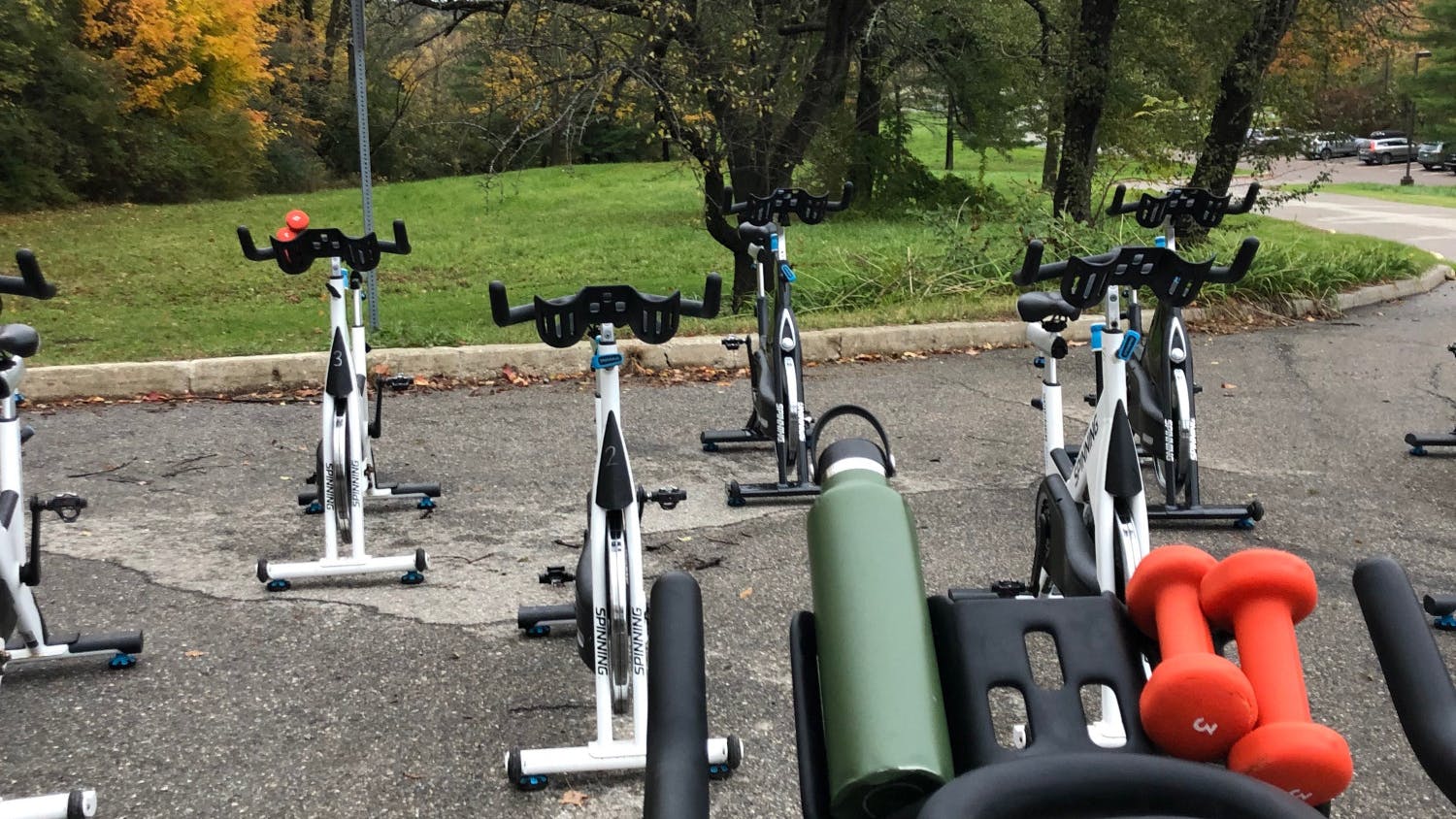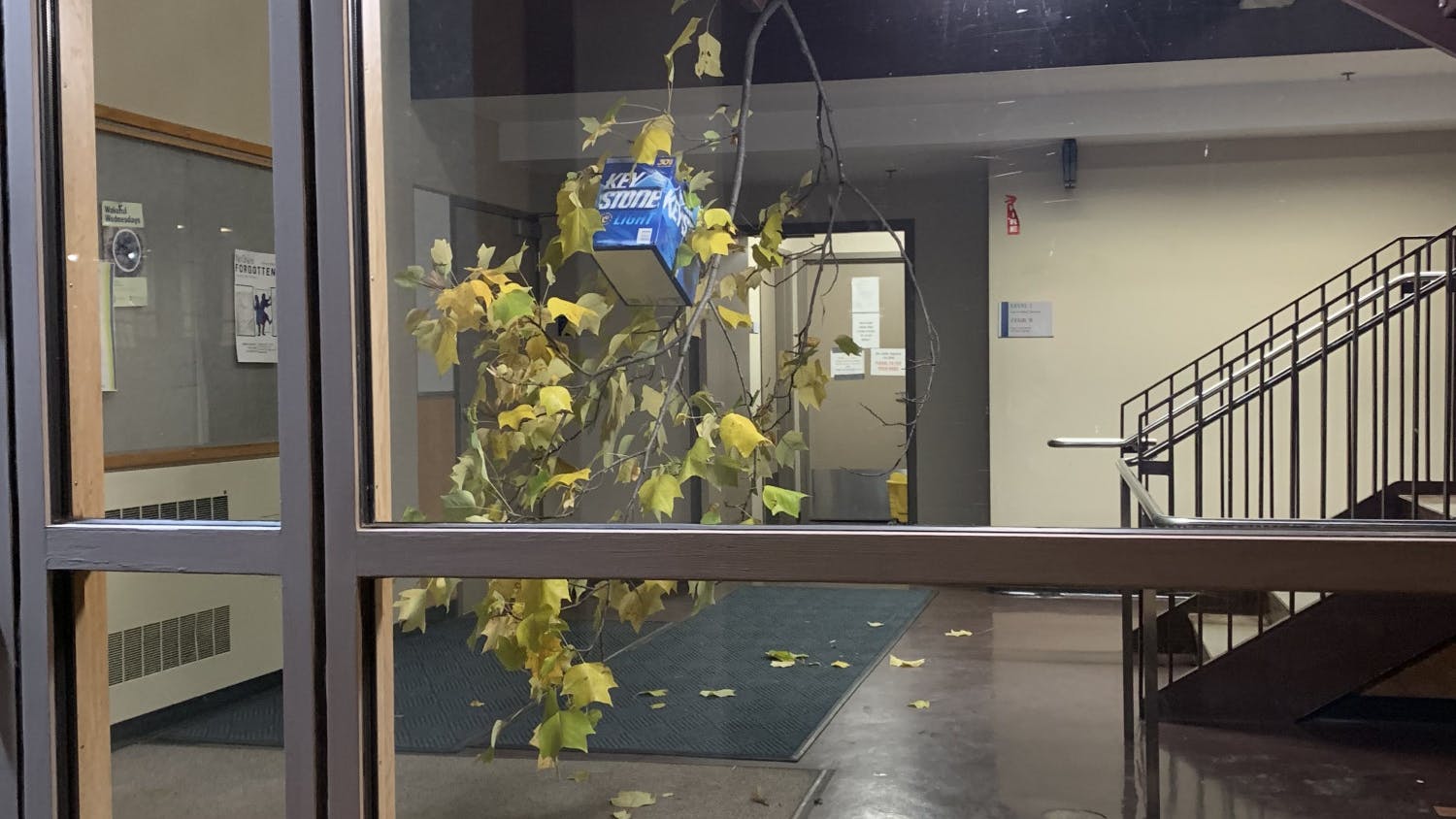For decades, professional actors from the Bread Loaf Acting Ensemble have enriched liberal arts curricula and pedagogy at the Bread Loaf School of English by collaborating with faculty to connect theatre practice and performance to classroom learning. This initiative, aptly titled Beyond the Page, seeks to catalyze critical learning and dialogue in undergraduate classrooms at Middlebury College through theatre.
Beyond the Page seeks to revolutionize education by performing texts so that faculty and students can visualize, feel and embody what is written while also building community in the classroom. Through the use of theatrical techniques, professional actors and teaching artists urge students to take risks to engage with a piece of text in a creative, comprehensive way.
Beyond the Page hopes to create an academic environment based on experiential learning where students can make mistakes without judgment.
This dynamic program between the college and Bread Loaf is relatively new but is on the rise. Before its launch in March 2020, the idea for Beyond the Page had already been around for five years. The group was endowed with grants from the Department of English and American Literature, the Performing Arts Council, and the Office of the Provost. After its initial sessions, Beyond the Page hopes to establish a robust presence within the liberal arts curricula of Middlebury classrooms.
“This idea that was born out of Bread Loaf now is really becoming this collective vision of how we can start learning and being in community together,” said 10-year Program Director Craig Maravich. “Students and faculty, especially new faculty who come to the table, are really hungry for these types of experiences that go beyond [the text].”
Maravich is proud of the positive reception that the group’s unconventional work has received by both students and faculty. Within its first full year of operation Beyond the Page has almost tripled the amount of class visits and worked with approximately 300 students. Beyond the Page has visited classes in various departments, ranging from Assistant Professor of Anthology Kristy Bright’s Ethnographic Research course to Associate Professor of Education Studies Tara Affolter’s Culturally Responsive Pedagogy class.
At its core, Beyond the Page actively promotes diversity, equity, and inclusion (DEI) principles in its creative process and intends to shift what education can mean, when accessibility is widened with respect to all student identities.
“Traditionally, the classroom has just catered to maybe one or two of the multitude of infinite ways that people can learn and take in information,” said Program Associate of Beyond the Page Haley Schwartz. “We’ve found, especially over this past year, that a lot of practices that we incorporate have been inherently doing these DEI principles that the college has been interested in cultivating and creating various points of access for different ideas, whether it’s hearing it or seeing it or speaking it.”
“A lot of DEI work requires that folks [who] come from a dominant group to de-center themselves… Beyond the Page has been very mindful of how they interact with one another and how they help more people learn across axes of power differences,” said Affolter, whose Models of Inclusive Education and Culturally Responsive Pedagogy classes have been visited by Beyond the Page.
Beyond the Page's pedagogical principles work in conjunction with the educational goals of faculty and the diverse identities of students, encouraging community-building.
A Beyond the Page workshop is anything but typical, but often begins with dynamic activity of movement. Maravich will often shout adjectives for everyone to portray within their bodies, such as “light,” “heavy” or “angry,” and eventually move to ideas found in the text of study. Such ideas can be as concrete as embodying a demon, when examining a text on madness, or as abstract as acting out time. Afterwards, all participants will reflect together on the activity at hand, encouraged by the faculty and teaching artists. After reflection, the movement and action begins anew.
Gina Zhang ’23 believes that Beyond the Page’s workshops gave her a new perspective on the book “Solibo Magnifique,” taught in her Madness in Caribbean Literature French course.
“In this book there are a lot of power hierarchies. We had an activity of arranging chairs and tables to demonstrate this power hierarchy in our [own] ways. Some students sat on the tables, or knocked down the chairs,” she said. “It reminded me of themes that I didn't really notice when reading the book, as well as a new way of engagement [with the text].”
Her classmate, Courtney Gantt ’22 agreed that their French class found new ways to interpret the text through interactive acting and speaking exercises.
“The presenters from Beyond the Page were energetic and enthusiastic, and they constantly encouraged dialogue and discussion about how we were feeling and connections to the text,” she said.
Gantt strongly encourages professors to integrate these sort of interdisciplinary workshops into their own courses.
For Beyond the Page, the community-bonding aspect of their work is as important as encouraging rigorous textual examination.
“There was a class where we kind of pushed them and they went there with us... Stories would come out among classmates that may not talk often in class, because of the work we’re doing [and] how we’re engaging the material, something arrives for the students,” said Madison Middleton ’22.5, a Beyond the Page teaching intern.
Student engagement is central to the work of Beyond the Page, alongside the intellectual rigor presented within the theatrical tools. Beyond the Page hopes to bring these foundational elements together, while facilitating greater dialogue about educational accessibility and inclusion.



